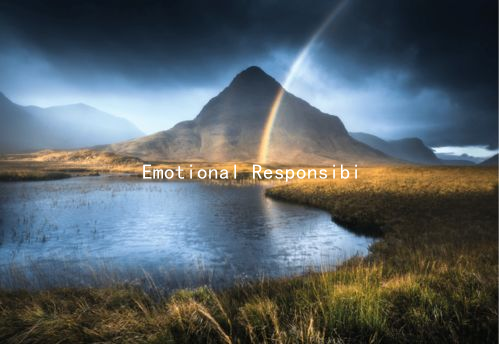Emotional Responsibility: The Key to Navigating Relationship Challenges
Emotional Responsibility: The Key to Navigating Relationship Challenges
In the complex landscape of modern relationships, emotional responsibility emerges as a vital skill for maintaining healthy connections. Emotional responsibility refers to the ability to recognize, understand, and manage one’s own emotions, as well as the ability to empathize with the emotions of others. This skill is not only essential for personal growth but also for navigating the inevitable challenges that arise in romantic relationships.
At the core of emotional responsibility is self-awareness. When individuals are mindful of their own feelings, they can better articulate their needs and preferences. This clarity fosters open communication, allowing partners to express themselves without fear of judgment or misunderstanding. For instance, instead of reacting impulsively in a moment of frustration, a partner who practices emotional responsibility might take a step back, acknowledge their feelings, and approach the situation with a calm demeanor. This practice not only diffuses tension but also sets a precedent for healthy conflict resolution.
Empathy is another crucial aspect of emotional responsibility. Understanding that one’s partner has their own emotional landscape helps in cultivating a compassionate relationship. When both partners practice empathy, they create a supportive environment where each persons feelings are validated and respected. For example, if one partner is feeling overwhelmed by work stress, the other can acknowledge this difficulty and offer support, rather than dismissing their feelings or making them feel guilty for not being fully present in the relationship.
Moreover, emotional responsibility involves taking ownership of one’s actions and their impact on others. It requires individuals to recognize the difference between a reaction and a response. A reaction may be defensive or aggressive, while a response that stems from emotional responsibility involves thoughtful consideration and communication. For instance, during disagreements, instead of blaming their partner or bringing up past grievances, a responsible partner would express how certain behaviors make them feel and work towards a collective solution.

One effective way to enhance emotional responsibility in a relationship is through regular check-ins, where partners discuss their emotional states and any challenges they’re facing. These conversations provide opportunities to express gratitude and appreciation, as well as to address any issues before they escalate. Creating a safe space for these discussions fosters deeper intimacy and trust, allowing partners to feel secure in sharing their vulnerabilities.
Additionally, setting personal emotional boundaries is an integral part of emotional responsibility. Individuals must understand their limits and communicate them to their partners. This reduces the likelihood of misunderstandings and feelings of resentment. By being upfront about what they can manage emotionally, partners can work together to ensure that both their needs are being met, without sacrificing their well-being.
Ultimately, emotional responsibility contributes to a stronger, more fulfilling relationship. It encourages partners to grow both individually and as a couple. As each person becomes more attuned to their emotions and those of their partner, the relationship transforms into a nurturing space where both individuals feel valued and heard.
In navigating the challenges of relationships, emotional responsibility is not just a strategy for conflict resolution; it’s a fundamental principle that underpins lasting love and connection. By prioritizing emotional awareness and empathetic communication, partners can foster resilience against the storms that may arise, ensuring that their bond remains strong through adversity.





